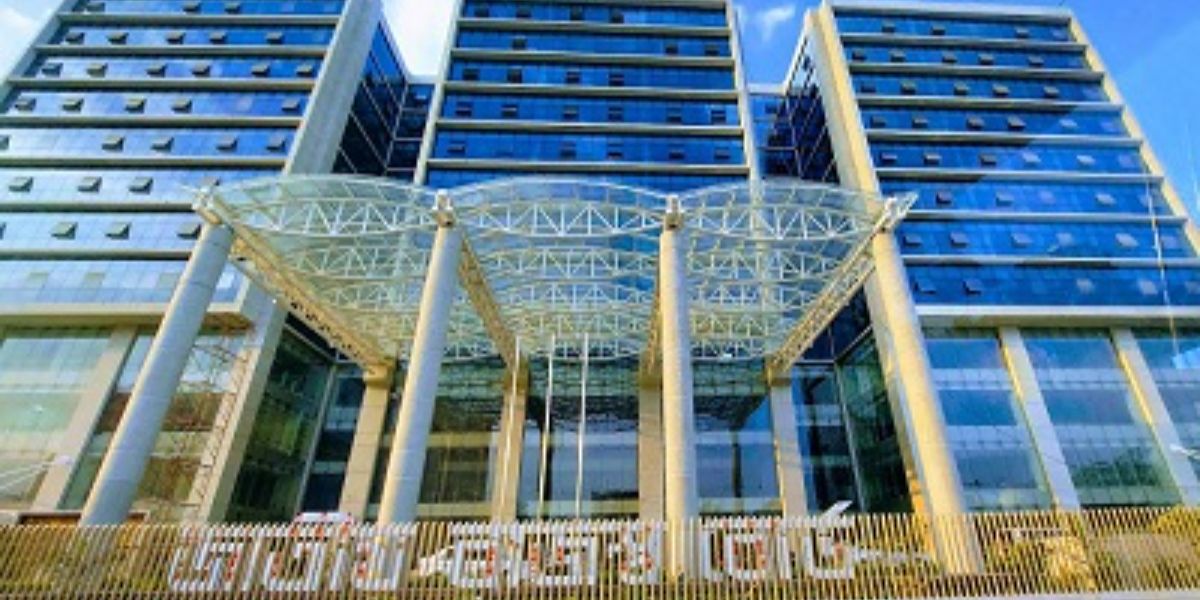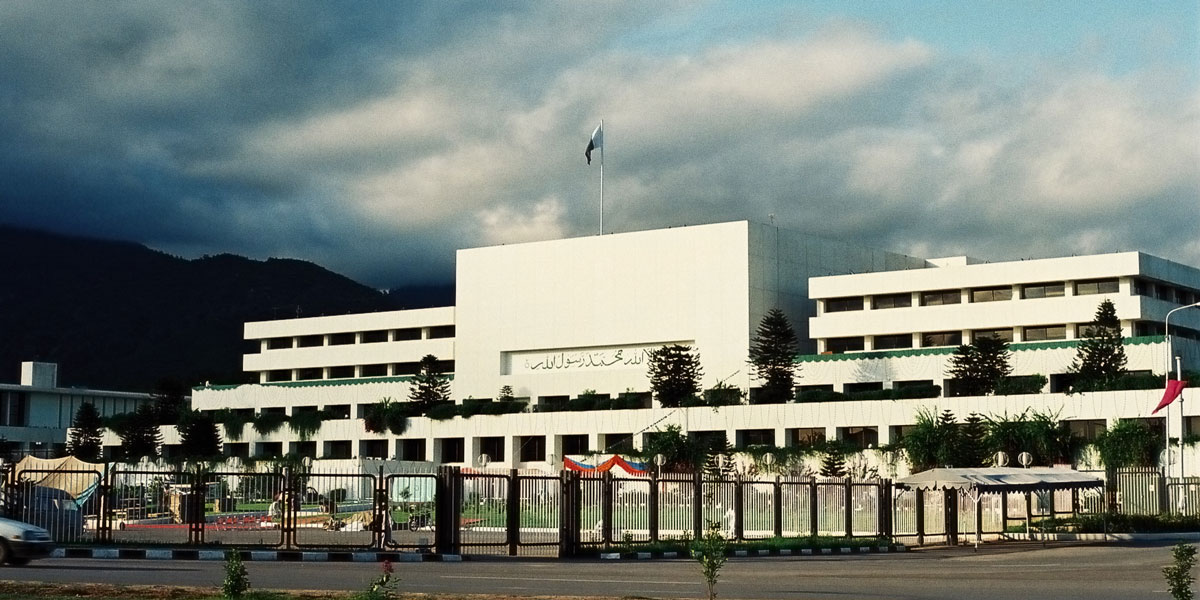On 3 June 2021, Mr. AHM Mustafa Kamal, the Finance Minister of Bangladesh presented the national budget for fiscal year (FY) 2021-2022 in the parliament.
The budget set the target for total revenue collection in the FY 2021-2022 at Tk. 389,000 crore, which is 11.3 percent of GDP. Out of this, Tk. 330,000 crore will be collected through the NBR sources. Tax revenue from non-NBR sources has been estimated at Tk. 16,000 crore, while the non-tax revenue is estimated to be Tk. 43,000 crore.
In FY 2021-2022, the size of the total expenditure has been estimated at Tk. 603,681 crore, which is 17.5 percent of GDP. Total allocation for operating and other expenditures has been set at Tk. 378,357 crore, while the allocation for the annual development program is Tk. 225,324 crore.
The overall budget deficit for FY2021-2022 will be Tk. 214,681 crore, which is 6.2 percent of GDP. Out of the total deficit, Tk. 101,228 crore will be financed from external sources, while Tk. 113,453 crore from domestic sources of which Tk. 76,452 crore will come from the banking system and Tk. 37,001 crore from savings certificates and other non-bank sources.
Individual Tax
Mr. Kamal proposed to keep the rate of tax applicable for individual taxpayers unchanged as significant changes have already been brought to this effect in FY 2020-2021. However, he proposed to reduce the rate of business turnover tax for individual taxpayers to 0.25 percent from 0.50 percent. The existing tax rate for individual taxpayers is also applicable for the taxpayers of the third gender. With a view to achieving social inclusion of the third gender, besides introducing a special provision, he proposed to fix the tax-free ceiling at Taka 350,000 for this community.
Corporate Tax
The corporate tax rate was brought down to 32.5 percent from 35 percent in FY 2020-2021. Finance minister propose to further reduce the tax rate for companies not listed in the stock exchange to 30 percent from 32.5 percent, and the tax rate for listed companies to 22.5 percent from 25 percent for FY 2021-2022.
In some cases artificial juridical persons used to enjoy the facility of paying taxes at the rate applicable for individual taxpayers. Now he proposed to fix the rate of income tax for artificial juridical persons and other entities, not otherwise defined, at 30 percent instead of the rate applicable for individual taxpayers. The applicable rate of tax on income arising out of operation of private universities, private medical, dental and engineering colleges as well as private colleges engaged solely in imparting education on ICT has been reduced to 15 percent through an SRO. Finance minister proposed to include this rate of 15 percent in the Finance Act.
Finance minister proposed the following overall corporate tax rate for FY 2021-2022 applicable for all classes of taxpayers other than individuals:
| Description | Existing FY 2020-2021 | Proposed FY 2021-2022 |
| Publicly traded company | 25% | 22.50% |
| Non-publicly traded company | 32.50% | 30% |
| One Person Company | 32.50% | 25% |
| Publicly traded bank, insurance and financial institution (except merchant bank) | 37.50% | 37.50% |
| Non-publicly traded bank, insurance and financial institution | 40% | 40% |
| Merchant bank | 37.50% | 37.50% |
| All sorts of tobacco including cigarette, bidi, chewing tobacco, gul manufacturing company | 45% + 2.5% (surcharge) | 45% + 2.5% (surcharge) |
| Publicly traded mobile operator company | 40% | 40% |
| Non-publicly traded mobile operator company | 45% | 45% |
| Publicly traded provider of mobile financial service (MFS) | 32.50% | 37.50% |
| Non-publicly traded provider of mobile financial service (MFS) | 32.50% | 40% |
| Association of persons | 32.50% | 30% |
| Artificial juridical person and other taxable entities | Rate applicable for individual taxpayer | 30% |
| Private university, private medical, dental and engineering college or private college solely dedicated to imparting education on ICT | 15% (rate fixed by SRO) | 15% |
Tax Incentives
The Budget proposal contains following tax incentives:
- Tax exemption facility to providers of cloud service, system integration, e-learning platform, e-book publications, mobile application development service and IT freelancing until 2024.
- Tax exemption, subject to certain conditions, for 10 years on production of some selective IT hardware if manufactured in Bangladesh.
- Keeping up to Taka 70 lac of business turnover of the women entrepreneurs outside the purview of taxation.
- Tax exemption, subject to certain conditions, to the companies engaged in production of three and four wheelers in Bangladesh for 10 years which may be extended to further 10 years on the fulfillment of certain other conditions.
- Tax exemption, subject to certain conditions, to the companies engaged in production of certain home and kitchen appliances as well as light engineering products for 10 years.
- Tax exemption, subject to certain conditions, for 10 years to industries engaged in processing locally grown fruits and vegetables, producing milk and dairy products, producing baby food entirely from locally grown agricultural products, and manufacturing of agricultural machineries.
- Tax exemption, subject to certain conditions, to general hospitals with a minimum of 250 bed capacity and having child and infant care, women and mother care, oncology, wellbeing and preventive medicine units, and also to specialized hospitals with a minimum of 200 bed capacity for 10 years. These hospitals are to be established in districts other than Dhaka, Narayanganj, Gazipur and Chittagong.
- Tax exemption, on certain conditions, for 10 years to institutions established to impart all sorts of diploma and vocational education on agriculture, fisheries, science and IT, and also to institutions engaged in delivering professional training on automobile, aircraft maintenance, food, footwear, glass, mechanical, shipbuilding, leather, refrigeration, ceramics, mechanist, garments design and pattern making, pharmacy, nursing, integrated medical, radiology and imaging, ultrasound, dental, animal health and production service, clothing and garment finishing and poultry farming.
- Tax exemption on the applicable capital gain tax at the time of transferring property to a trust or Special Purpose Vehicle, or transferring property by a trust or Special Purpose Vehicle, vice versa, with a view to popularizing and creating a strong market for Sukuk or Islamic bond.
- Reducing tax rate on import of raw material related to cement production from 3 percent to 2 percent and the tax rate that deduction at source on supply of cement, iron and iron products from 3 percent to 2 percent.
- Reducing tax rate of Taka 100 per passenger instead of Taka 125 at the time of renewal of survey certificate of old marine vessels plying for ten years or more from the date of registration.













